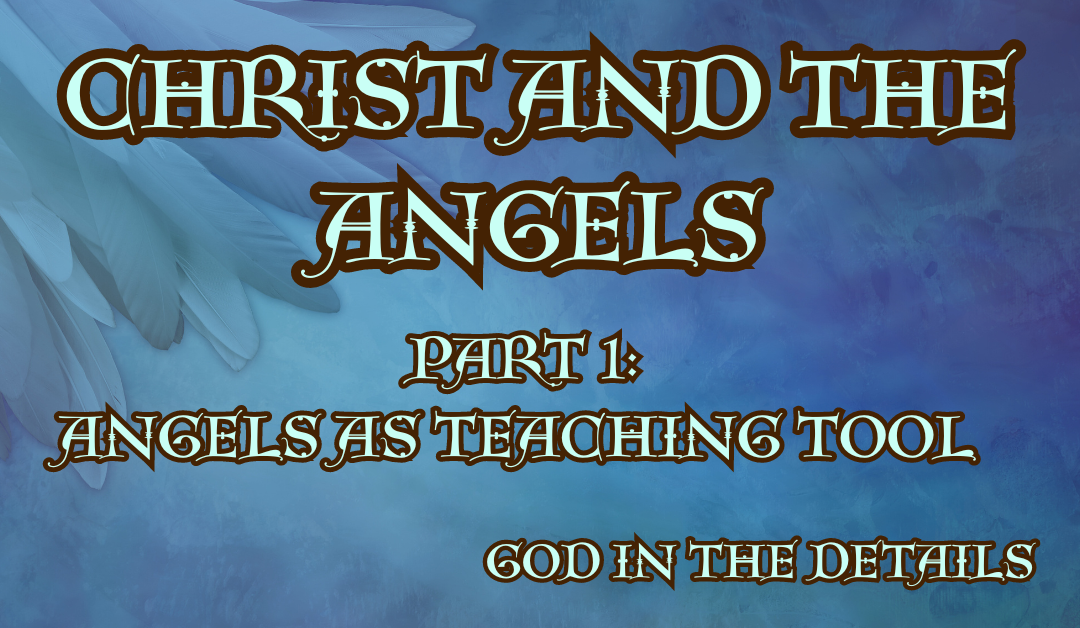
Christ and the Angels: Lower than the Angels
David asks: What is man that thou art mindful of him? Or the son of man that thou visitest him? For thou hast made him a little lower than the angels, and hast crowned him with glory and honour. (Psalm 8:4-5, KJV).
It’s a question I’ve often asked, and I’m sure it must’ve crossed your mind in the past as well – who am I that God is mindful of me? Who am I that He cares for me? Who am I that He sees me, and hears me, and loves me unconditionally?
Now – it is important for us to acknowledge that man is made up of various components – that the flesh can be separated from the spirit and from the soul. They are three distinct parts.
In the beginning God created the universe – He created man – and told man to reign over all the Earth, to have authority!
God made us, a little lower than the angels, but crowned us with glory and honor.
When we talk about Jesus being lower than the angels it is of utmost importance that we separate the various components which makes us human. Jesus isn’t lower than the angels in spirit and soul – but only in body! He is lower than the angels because of the perishable flesh He took on. We must remember that Christ is still God!
The Bible teaches that sin came into the world through one man – Adam, but also that our redemption comes from one man – as promised in Genesis 3:15 and fulfilled in Christ – the anointed Messiah in whom we have redemption, the remission of our sins and eternal life.
Hebrews 2:14: (KJV) reads as follows:
“Forasmuch then as the children are partakers of flesh and blood, he also himself likewise took part of the same; that through death he might destroy him that had the power of death, that is, the devil;”
Tying in with the previous passage, as found in Hebrews 2:9-10:
“But we see Jesus, who was made a little lower than the angels for the suffering of death, crowned with glory and honour; that he by the grace of God should taste death for every man. For it became him, for whom are all things, and by whom are all things, in bringing many sons unto glory, to make the captain of their salvation perfect through sufferings.”
God stepped down from His throne into the darkness of the world, into our midst, so that He could restore us, rescue us and take us home – return us, in right standing, to His Kingdom.
God stepped down from His throne, inclined to man, and it became Him to become a little lower than the angels so that He could suffer for our infirmities, be broken for our transgressions, and pierced for our iniquity. It became Him to step down from Glory, so that He could be glorified by His love for us – so that we could glory in His embrace.
He came to Earth a little lower than the angels to restore us, to take all our burdens upon Him, to taste death for man, so that we could eat the bread of life eternal.
In this we see this Christological concept – that Jesus is the Word that took on flesh to become the Spotless Lamb of God, the Sacrifice for the remission of our sins and our reconciliation with Himself. The perishable flesh that would serve as the metaphorical ‘veil’ behind which the fullness of God lives – torn so that we may realize that God is not in that box, but among us, dwelling, moving, and working in our midst.
The Word, infinite and eternal, taking on corruptible, frail and fragile flesh is the epitome of God bowing the heavens to tabernacle in our midst. The immortal becoming perishable the ultimate sacrifice.
Reflect:
1. In the second chapter of Hebrews the author draws a comparison between Jesus and the angels to explain the significance of His incarnation. What are some ways that you can describe the incarnation of Jesus in your personal mission field?
2. In the first two chapters of Hebrews the author draws comparisons between Christ and the angels to explore His majesty, power and glory – but also the frailty of the flesh He came to inhabit. Why is it important to understand both sides of the Incarnation to have a full view of His finished work on the Cross?
3. Considering the above, what can we as believers take out of the text to influence the way we live our lives and our outreach to our neighbours?
Prayer:
Lord, in all things – persecution, famine, nakedness and sword – help me be a faithful witness of Your Kingdom. You endured great discomfort, pain and even death to prove Your love for us. My flesh might fail, but Your Spirit does not. Empower me through the indwelling of Your presence to see Your Kingdom come in our midst as I pray for, work for and strive for revival in my life and the lives of those around me. Give me a renewed understanding of the frailty You chose on my behalf and the sacrifice – Your Body and Your Blood – for me. Let me live a life worthy of the One You gave – with gratitude and thanksgiving. In Jesus Name. Amen.




